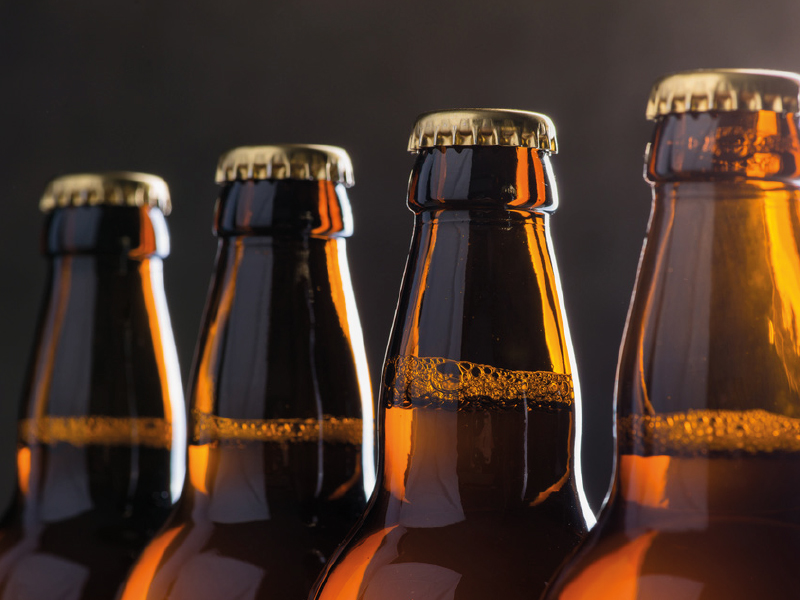
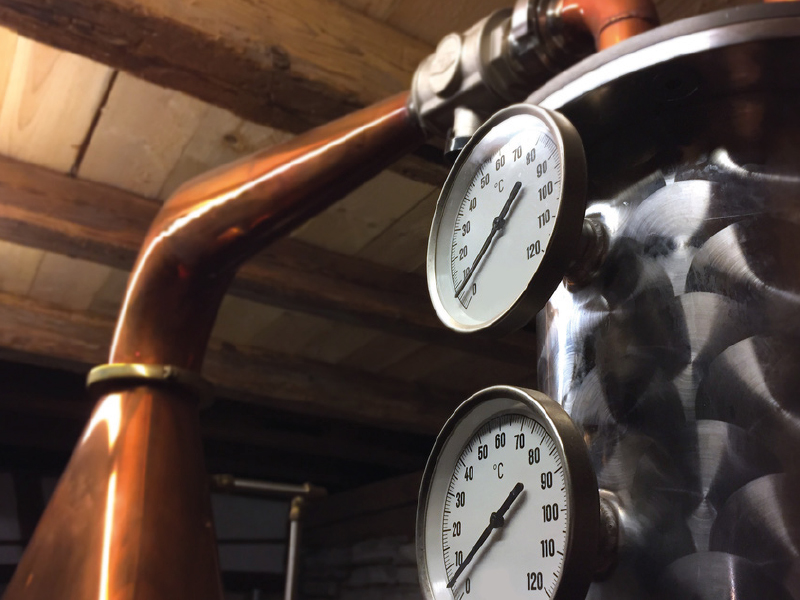
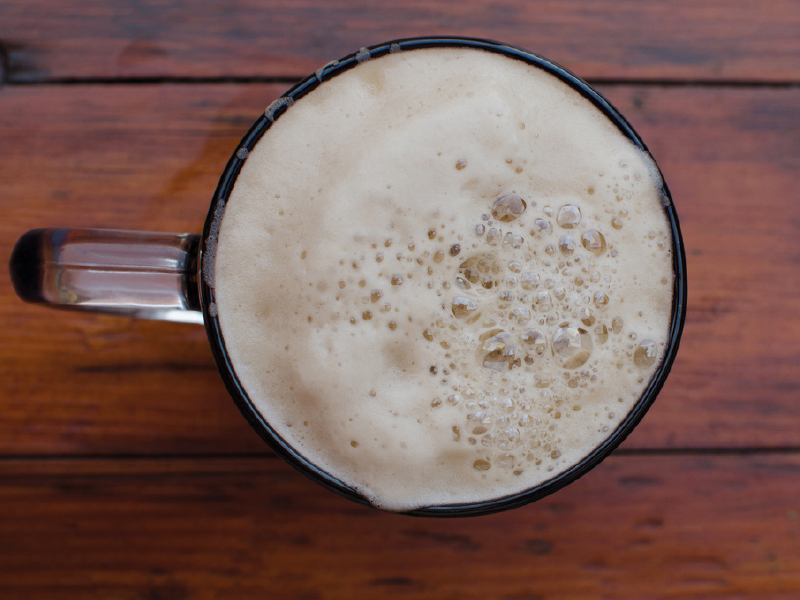
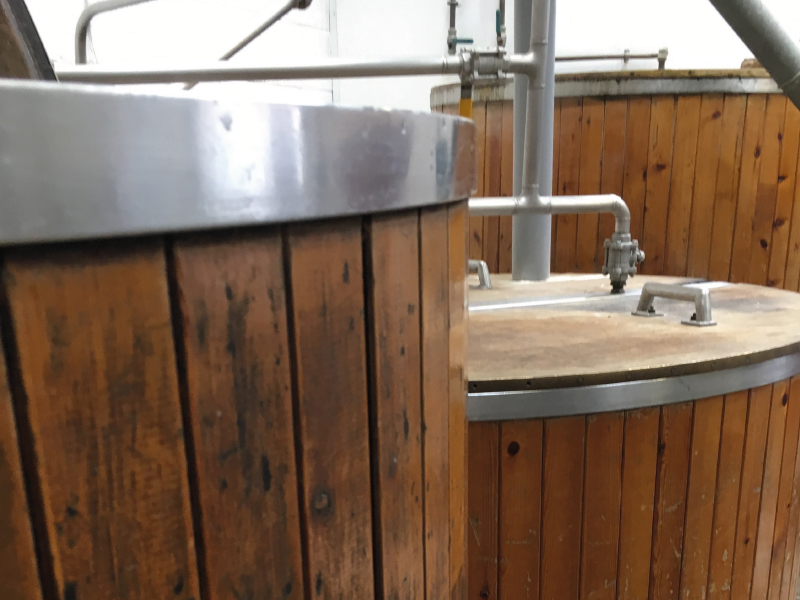
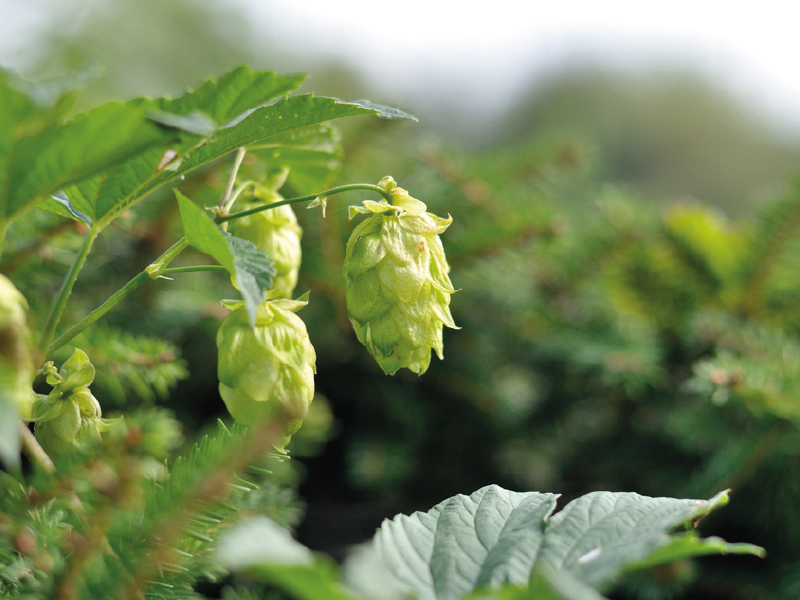
THE CRAFT BREWING PROCESS & SUPPLY CHAIN
Goffs use only the best ingredients in its beers and source locally wherever possible. Our beers are made with local Cotswold water, finest malts, top quality hops, and traditional brewers yeast. We don’t add anything else!
WATER
We are fortunate to be based in the Cotswold’s where the local water is top quality. We treat it accordingly to get the perfect balance for the styles of beer that we brew.
MALT
We source our quality malted barley from local suppliers. All our spent grain is then given to a local farmer for feed for his award winning sheep.
HOPS
The hops we choose for each of our beers gives them their own unique aroma and flavour. Around the world, countries grow a variety of hops and we love to explore their profiles and how they interact together, to create our lovingly crafted beers.
YEAST
The finishing process requires the blending of good-quality yeast.
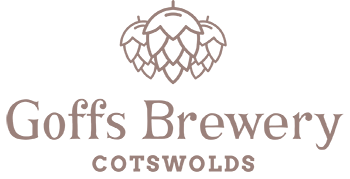
THE BREWING PROCESS: COTSWOLD CRAFT BEER SINCE 1994
Using traditional methods our beers are brewed in small batches, and our Head Brewer oversees every aspect of the process. From the milling of the malt, the boiling of the hops, to the filling of the casks – everything is lovingly crafted to ensure that our beers reach you in perfect condition. Each beer recipe is known as the Grist. Our head brewer and his team come up with the recipes, using over 20 years experience they work out the perfect blend of malts, hops and other ingredients. The night before a brew, the appropriate amount of malts are weighed out and loaded into the hopper of our vintage mill.
Mashing:
The quality and type of water (or liquor) is of major importance in brewing. Being based in the Cotswold hills, we have unlimited access to the best quality water.
The malt is mixed with hot liquor in the mash tun, which is a large round stainless steel tank with filter plates in the bottom. The malt contains natural enzymes that convert the complex starchy sugar to maltose and dextrins. The mash is rinsed with hot water to remove the sugars out from the grains. This process is called sparging.
Boiling
After approx 1.5 – 2 hours of sparging, the resulting sugary liquid, now known as wort, ends up in the copper. The copper (so named as they were traditionally made from that metal – but are now made of stainless steel) acts as a giant kettle. Here the wort is boiled to sterilise it. Hops are added to the copper early in the boil, primarily to provide bitterness and flavouring with more hops being added later on to provide aroma. We use top quality English hops (many grown locally) for our core range of traditional ales. We source hops from around the world for use in our innovative one-off brews.
Fermentation
The boiled wort is cooled quickly via a heat exchanger on its way to one of our fermentation tanks. The yeast is added to the cooled wort and converts the sugars into alcohol. The fermentation takes 2 to 3 days whereafter the beer is then chilled and moved into a conditioning tank for a further 5 days in order to condition, where yeast drops out of suspension and astringent flavours are softened. Depending on the brew more hops may be added at this stage for increased hoppy aromas.
Racking
Not just the shelves on the wall. Racking is the term used for filling the casks. The finished beer is now hand racked into sterilized firkins (9 gallon casks) where another week or so of final conditioning will happen before the beer is delivered, it is at this point that finings are added to ensure the clarity (brightness) of the finished beer is perfect.
And finally
Everyone in the team has to do lots of sampling (drinking) regularly to ensure every batch is up to scratch before it leaves.

INGREDIENTS

PRODUCTION

TIME & CARE
